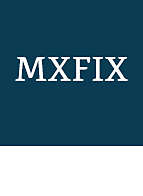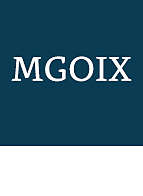Overview
Overview
Today’s Income Dilemma
Lower rates have compressed yield, reducing both current income and future return potential. Yet, this search for yield is nothing new.

Source: New York Life Investments Multi Asset Solutions, Bloomberg LP, Standard and Poor’s, as of 12/31/20. US 10Y Treasury Bond Yield is represented by the U.S. 10-year Treasury note at the start of each decade. The 10-year Treasury note is a debt obligation issued by the United States government with a maturity of 10 years upon initial issuance. A 10-year Treasury note pays interest at a fixed rate once every six months and pays the face value to the holder at maturity. Bloomberg US Aggregate Index measures the investment grade, U.S. dollar-denominated, fixed-rate taxable bond market, including Treasurys, government-related and corporate securities, mortgage-backed securities (agency fixed-rate and hybrid adjustable-rate mortgage pass-throughs), asset-backed securities, and commercial mortgage-backed securities. Returns are total returns annualized over that decade. Past performance is no guarantee of future results, which may vary. An investment cannot be made directly into an index.
Resources
Resources
Perspectives on current market dynamics, dilemmas facing income investors, and how our actively managed income solutions can help.
- Tax-Exempt & Taxable Municipal Bond Insights
- Floating Rate Loan Insights
Municipal Strategies for Today's Low-Rate World
Income replacement continues to be a key challenge for advisors and clients in today's market. Bob DiMella, Executive Managing Director and Portfolio Manager, talks about the importance of active management and offers three municipal bond strategies.

Future Returns: Insured Munis
A Barron’s interview with Bob DiMella and John Loffredo, who discuss the muni market and insured munis, the belt-and-suspenders of muni investing.



Why Taxable Municipal Bonds Are Booming and How to Invest in Them
Barron’s looks at taxable municipal bonds, the fastest growing sector in U.S. fixed income, and MainStay MacKay U.S. Infrastructure Bond Fund.

Webinar: Not All Rates Rise Equally—An Opportunity for Floating Rate Loans
Seasoned experts from New York Life Investments share insight into navigating today’s income dilemma and how floating rate loans can help.

Yield Opportunity in Today’s Low-Rate World
As low rates persist and the Treasury yield curve continues to steepen, floating rate loans may be a compelling solution for fixed income investors. Arthur Torrey, Managing Director and Portfolio Manager at NYL Investors, discusses opportunities in the asset class.

Not All Rates Rise Equally
Loans can offer attractive yield potential, relative value opportunity, low interest rate risk, and diversification benefits when longer-term rates are rising — as they are today.

Solutions
Solutions
Performance data quoted represents past performance. Past performance is no guarantee of future results. Due to market volatility, current performance may be less or higher than the figures shown. Investment return and principal value will fluctuate so that upon redemption, shares may be worth more or less than their original cost. Performance figures for all Funds reflect contractual waivers and/or expense limitations, without which total returns may have been lower. These limitations may be modified or terminated only with Board approval.
The Morningstar Rating™ for funds, or "star rating", is calculated for managed products (including mutual funds, variable annuity and variable life subaccounts, exchange-traded funds, closed-end funds, and separate accounts) with at least a three-year history. Exchange-traded funds and open-ended mutual funds are considered a single population for comparative purposes. It is calculated based on a Morningstar Risk-Adjusted Return measure that accounts for variation in a managed product's monthly excess performance, placing more emphasis on downward variations and rewarding consistent performance (this does not include the effects of sales charges, loads, and redemption fees). The top 10% of products in each product category receive 5stars, the next 22.5% receive 4 stars, the next 35% receive 3 stars, the next 22.5% receive 2 stars, and the bottom 10% receive 1 star. The Overall Morningstar Rating for a managed product is derived from a weighted average of the performance figures associated with its three-, five-, and 10-year (if applicable) Morningstar Rating metrics. The weights are: 100% three-year rating for 36-59 months of total returns, 60% five-year rating/40% three-year rating for 60-119 months of total returns, and 50% 10-year rating/30% five-year rating/20% three-year rating for 120 or more months of total returns. While the 10-year overall star rating formula seems to give the most weight to the 10-year period, the most recent three-year period actually has the greatest impact because it is included in all three rating periods.
Morningstar ratings as of 3/31/21. IQ MacKay Municipal Insured ETF Morningstar Risk-Adjusted Ratings: US Fund Muni National Interm Category - Overall Rating 5 stars out of 249 funds, 3 Year 5 stars out of 249 funds. MainStay Floating Rate Fund Morningstar Risk-Adjusted Ratings: US Fund Bank Loan Category - Class A Shares Overall Rating 3 stars out of 232 funds, 3 Year 3 stars out of 232 funds, 5 Year 3 stars out of 209 funds, 10 Year 3 stars out of 109 funds. MainStay MacKay Short Term Municipal Fund Morningstar Risk-Adjusted Ratings: US Fund Muni National Short Category - Class A Shares Overall Rating 2 stars out of 201 funds, 3 Year 3 stars out of 201 funds, 5 Year 2 stars out of 178 funds, 10 Year 2 stars out of 138 funds. MainStay MacKay U.S. Infrastructure Bond Fund Morningstar Risk-Adjusted Ratings: US Fund Intermediate Core Bond Category - Class A Shares Overall Rating 2 stars out of 385 funds, 3 Year 2 stars out of 385 funds, 5 Year 1 stars out of 337 funds, 10 Year 1 stars out of 255 funds.




